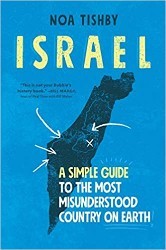What is a biographer to do, when the subject is admirable and accomplished, but their inner life is less than thrilling? After all, it’s the underlying premise of biography, that by examining the person’s life — their upbringing, their challenges, their passions — we can understand what led them to the great works they accomplished. The life of Henrietta Szold — who as a young woman repeatedly pinned marriage hopes on men who abandoned her for unexpected rivals, who worked herself into the ground for faint praise, who considered it a sort of virtue never to ask for anything in return for her efforts — could be a hard sell for modern readers. We like our heroes — particularly our women — feisty and strong; meekness, even in historical context, seems like weakness.
Henrietta Szold, oldest of eight daughters of an esteemed Baltimore rabbi, grew up learning it was a woman’s job to make a good home, to raise fine children, and to help her husband however she could. If educated, like Szold, a woman might be a helpmate in some man’s work, but to expect acknowledgement for her efforts, or proper pay, would have been unseemly. Boundaries of female respectability were all the more powerful for never needing to be said. While Hacohen imagines the frustration young Szold must have felt, knowing that if she were a man her professional options would have been limitless — it is not entirely clear that Szold actually experienced such a “feminist” moment.
Cruelly disappointed in romance, Szold also broke away away from her endless work for the Jewish Publication Society and for various male-dominated Zionist organizations. Hadassah, her new project, allowed her to use all her skills and experiences for a cause she personally believed in — the mobilization of American Jewish women in the Zionist cause. Her organizing instincts — how to develop grassroots support, how to fundraise successfully, how to choose clear, supportable goals — all came together in this new work. Before long, Szold herself was in Palestine tackling Hadassah’s signature project, medical care in the Yishuv. Fundraising with donors and, at the same time, building a healthcare system, was not easy. After earning respect for restructuring the medical system, she was asked to tackle education and social services in Mandatory Palestine. Szold’s Yishuv work was hard; she had to raise the money for her projects and convince people this was professional work and not charity, all the while navigating the ideological differences of various religious and political factions.
Szold was in her seventies when the rise of fascism in Europe presented her with her biggest challenge ever: the Youth Aliyah, the rescue of endangered Jewish children from Europe and the near East to settle them in Palestine. Haranguing British officials for exceptions to their immigration restrictions, attending personally to the convoys of children, inspecting the resettlement facilities — no one but Szold would have made such a hands-on commitment to the well-being of these refugees. That she died in the midst of this great work seems inevitable; retirement was never part of her plans.
In some ways, Hacohen has evaded the problem of Szold’s self-effacing character by intertwining it with a mini-biography of the Yishuv. Somehow this seems quite appropriate, as Szold was a woman who ultimately put her life’s work above her personal needs.
Bettina Berch, author of the recent biography, From Hester Street to Hollywood: The Life and Work of Anzia Yezierska, teaches part-time at the Borough of Manhattan Community College.



